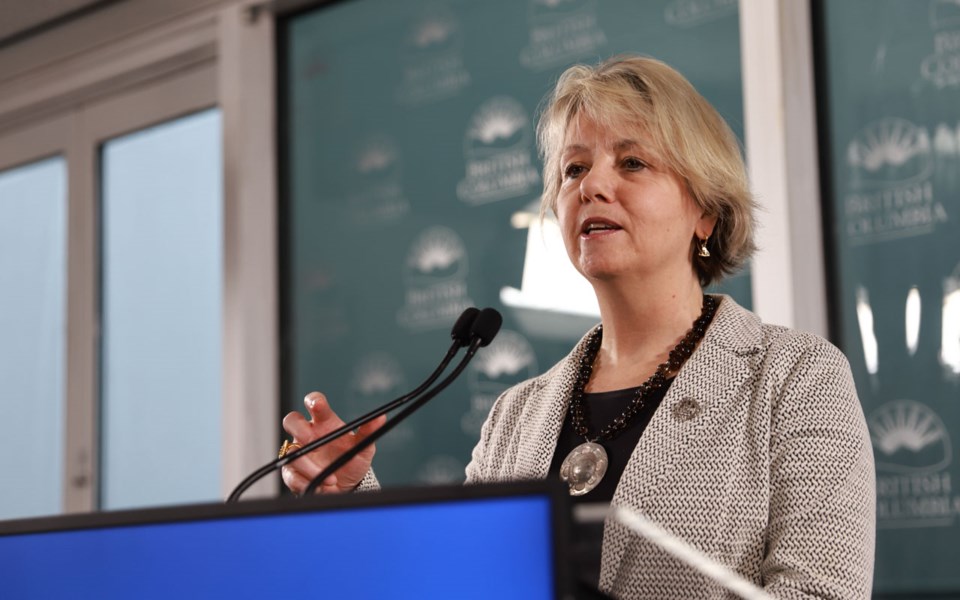In mid-November, when B.C.’s Provincial Health Officer Dr. Bonnie Henry advised everyone that skiers and boarders should only recreate at their local mountains, it caused most of us locally to pause.
I happened to be at an outdoor patio with my husband and two friends in our “bubble” and as word spread, there was literally a sense of panic amongst the staff at the eatery. Our server was visibly upset and told us she wasn’t sure how she was going to afford to keep living here and voiced frustration about how much more the restaurant sector could be expected to do to keep their patrons safe, never mind the prospect of not having any if no one could come to ski.
It was a rather sobering experience.
Yet as Whistler saw its own local coronavirus case numbers begin to rise, I could see how this new mini-lockdown Dr. Henry was recommending made sense.
Initially, people from the Lower Mainland seemed to take Dr. Henry’s advice to heart and it definitely felt quieter in the resort.
But by December, it was as if the travel guidelines had never been mentioned despite being in numerous news stories day after day.
And certainly over the Christmas and New Year’s holiday periods, Whistler was coronavirus-style “packed.”
Line-ups to get up Whistler Blackcomb and ski and ride on mountain are as long as I’ve ever seen them—let’s not pretend all these people are local (as in Whistler, Pemberton and Squamish). The line-ups at all the local grocery stores were insane. In the days leading up to Christmas, the line-ups to gift shop throughout the village could only mean one thing—visitors were back spending.
Walking the golf course trail, I can’t even count the number of visitors I walked behind, around or past. My favourite was when I got stuck behind a U.S. visitor who was busy describing via cellphone to her mum how much better Whistler Blackcomb was to ski on compared to other Vail Resorts mountains they had visited. Any other year and that would have put an ear-splitting grin on my face, but not during the pandemic.
However, let’s not forget that the travel restrictions to Whistler to ski are only an advisory, not a health order. People can come if they want.
And there are hundreds of workers and business owners in Whistler who are grateful they came and are still coming—this is our double-edged sword.
Locals are concerned. Just take at look at the reaction on Pique’s Facebook to a Letter to the Editor posted on the topic a few days ago.
Wrote one person, “As a health care worker it’s a slap in the face.” Said another, “I think it’s very inconsistent that B.C. residents were recommended to ski local while some accommodation providers in Whistler were allowed to accept bookings from people coming from provinces with higher infection levels than we have in B.C.”
And then this week, to find out that politicians at the federal and provincial levels had gone on holidays to places like St. Barts, Hawaii and Mexico over Christmas while their own health officers have been advising against all travel is just the final straw. (One of our own local councillors, Cathy Jewett, flew to Ontario to provide respite care for her aging parents, both of whom are in lockdown in a remote rural area.)
Why should anyone abide by travel restrictions if their own elected officials are travelling for vacations? Well, the answer is, of course, because we have to if we want to fight the coronavirus. Let’s look at Wuhan, ground zero for COVID-19, one year later for why lockdown and monitoring work.
This city of 11 million was put into lockdown for 76 days (officially, there were 4,000 dead and 50,000 infected, though many question these stats as being artificially low). Yes, it was draconian and civil rights were violated every day—they are still being violated. But one year later, the city is fully open without a single locally transmitted case. When they did have a scare in May, they tested 10 million people in 20 days and locked down those infected. Everyone in China has also had to download an app that traces their health.
Obviously, these types of steps would never be taken in Canada, but the results of this type of action is what is at the root of the ask not to travel, to wash our hands, to wear a mask (though Wuhan officials denied for weeks at the outbreak that the virus could be transmitted person to person).
Since January 2020, North Shore Coast Garibaldi has seen 2,169 cases of COVID-19. From Dec. 20 to 26, there were 41, while from Dec. 25 to Dec. 31, there were 69. Let’s do what we can to be safe, be calm and be kind as we face this continuing pandemic.




